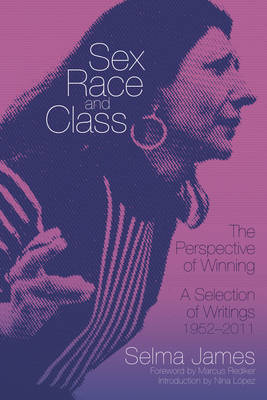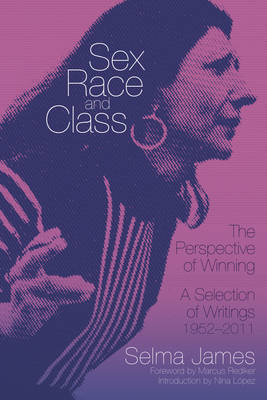
- Retrait gratuit dans votre magasin Club
- 7.000.000 titres dans notre catalogue
- Payer en toute sécurité
- Toujours un magasin près de chez vous
- Retrait gratuit dans votre magasin Club
- 7.000.0000 titres dans notre catalogue
- Payer en toute sécurité
- Toujours un magasin près de chez vous
Description
In 1972 Selma James set out a new political perspective. Her starting point was the millions of unwaged women who, working in the home and on the land, were not seen as "workers" and their struggles viewed as outside of the class struggle. Based on her political training in the Johnson-Forest Tendency, founded by her late husband C.L.R. James, on movement experience South and North, and on a respectful study of Marx, she redefined the working class to include sectors previously dismissed as "marginal."
For James, the class struggle presents itself as the conflict between the reproduction and survival of the human race, and the domination of the market with its exploitation, wars, and ecological devastation. She sums up her strategy for change as "Invest in Caring not Killing."
This selection, spanning six decades, traces the development of this perspective in the course of building an international campaigning network. It includes excerpts from the classic The Power of Women and the Subversion of the Community which launched the "domestic labor debate," the exciting "Hookers in the House of the Lord" which describes a church occupation by sex workers, an incisive review of the C.L.R. James masterpiece The Black Jacobins, a reappraisal of the novels of Jean Rhys and of the leadership of Julius Nyerere, the groundbreaking "Marx and Feminism," and more.
The writing is lucid and without jargon. The ideas, never abstract, spring from the experience of organising, from trying to make sense of the successes and the setbacks, and from the need to find a way forward.
Spécifications
Parties prenantes
- Auteur(s) :
- Editeur:
Contenu
- Nombre de pages :
- 300
- Langue:
- Anglais
- Collection :
Caractéristiques
- EAN:
- 9781604864540
- Date de parution :
- 01-05-12
- Format:
- Livre broché
- Format numérique:
- Trade paperback (VS)
- Dimensions :
- 152 mm x 226 mm
- Poids :
- 453 g

Les avis
Nous publions uniquement les avis qui respectent les conditions requises. Consultez nos conditions pour les avis.






